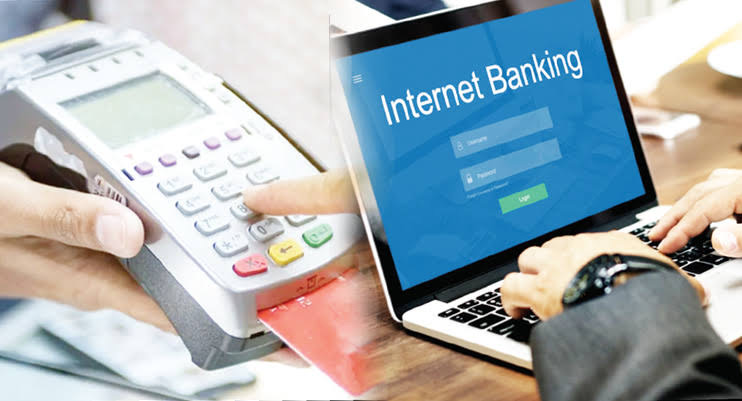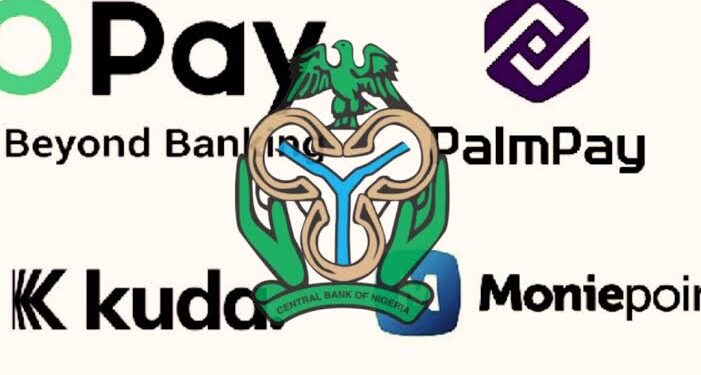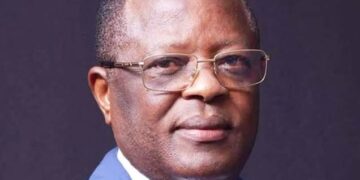Nigeria’s cashless economy is experiencing a significant surge, with instant transfers leading the charge, while point-of-sale (PoS) transactions are on the decline.
New data from the Nigeria Interbank Settlement System (NIBSS) reveals that total cashless transactions rose by an impressive 84.37% to reach N572.63 trillion in the first seven months of 2024.
This growth is a continuation of the upward trend observed at the end of 2023 when cashless payments had reached N611.06 trillion, a considerable increase from the N395.38 trillion recorded in 2022.

Experts anticipate that these figures will continue to rise, potentially reaching unprecedented levels by the end of 2024.
NIBSS tracks cashless transactions across various channels, including instant payments and PoS systems. According to the report, instant payments saw a massive increase of 86.44%, totaling N566.39 trillion during the first seven months of the year.
This growth highlights the preference for quick and convenient online transactions among Nigerians.
However, in contrast to the rise in instant payments, PoS transactions—once a driving force behind cashless payments, particularly after the Central Bank of Nigeria (CBN) introduced its naira redesign policy and withdrawal limits in 2022—have seen a decline. PoS transactions fell by 8.19%, dropping to N6.23 trillion over the same period.
The CBN first introduced the PoS system and agent banking in 2013 as part of its broader strategy to promote financial inclusion and advance Nigeria’s cashless economy.
Since then, the number of registered PoS terminals has grown exponentially, increasing by 802.93% to reach 4.06 million by July 2024, up from 449,998 in January 2020.
Despite this impressive growth, the rise of mobile money operators such as OPay and PalmPay, coupled with the increasing penetration of smartphones, has had a significant impact on the landscape of financial transactions in Nigeria.
In its “Nigerian Payments Report 2024,” fintech firm Zone stated that “POS transactions play a pivotal role in providing enhanced convenience, speed, and security, contributing to the ongoing transformative shift towards heightened adoption of cashless transactions in Nigeria.”

However, the report also acknowledged the growing influence of mobile money operators, which have capitalized on the rising availability of smartphones to facilitate financial transactions, particularly in remote or unbanked areas.
This shift suggests that mobile money may be playing an even more significant role in driving financial inclusion than PoS terminals.
After introducing transaction limits in 2022, the CBN encouraged consumers to use alternative banking channels, including internet banking, mobile apps, USSD, PoS systems, cards, and even eNaira.
Despite the withdrawal of the naira redesign policy, Nigeria’s cashless economy has continued to thrive, aligning with the CBN’s Payments Vision 2025.
This strategic vision aims to reduce reliance on physical cash by promoting efficient electronic payment infrastructure, with mobile technology at the heart of the initiative.
Zone’s report emphasized that the explosive growth in mobile app transfers, online transfers, and mobile money operators (MMOs), combined with the Nigeria Interbank Payment System (NIP), demonstrates a clear shift toward a more cashless payment system.
“It is evident that the tremendous growth of Mobile App Transfers, Online Transfers, MMOs, and the NIP together paint a clear picture that Nigeria’s payment system is becoming much more cashless and much more dependent,” the report stated.
The expansion of digital payment methods has relegated traditional ATM and PoS transactions to the background as mobile transfers become the go-to choice for Nigerians.
The growing popularity of mobile payments is also driven by increasing smartphone penetration in Nigeria. By 2022, 58% of urban areas had smartphone users, making mobile applications the preferred method for conducting financial transactions.
This shift is evident in everyday activities, with even informal vendors and transport operators now accepting mobile transfers as a mode of payment.
“Everyone accepts transfers now, even people that sell in traffic,” observed tech expert Temiloluwa Lawal. “Even Keke drivers are accepting transfers,” added Daniel Ishie, a mobile money agent.
The CBN’s guidelines for mobile money recognize the importance of mobile telephony and person-to-person payments in promoting financial inclusion. The adoption of mobile channels has been crucial in bringing financial services to unbanked populations across the country.
According to GSMA, a global telecom industry body, OPay has become the most downloaded app in Nigeria, boasting over 30 million users, while PalmPay also has over 30 million registered accounts. GSMA acknowledged that “the growth of non-MNO-led mobile money providers in Nigeria has driven financial inclusion, alongside the rising use of PSBs.”
This surge in mobile money usage has contributed significantly to the increase in digital payments, expanding access to digitally enabled financial services nationwide.
As the adoption of mobile channels continues to grow, Nigeria’s cashless economy is likely to expand further, playing a crucial role in the country’s broader financial inclusion efforts.

































